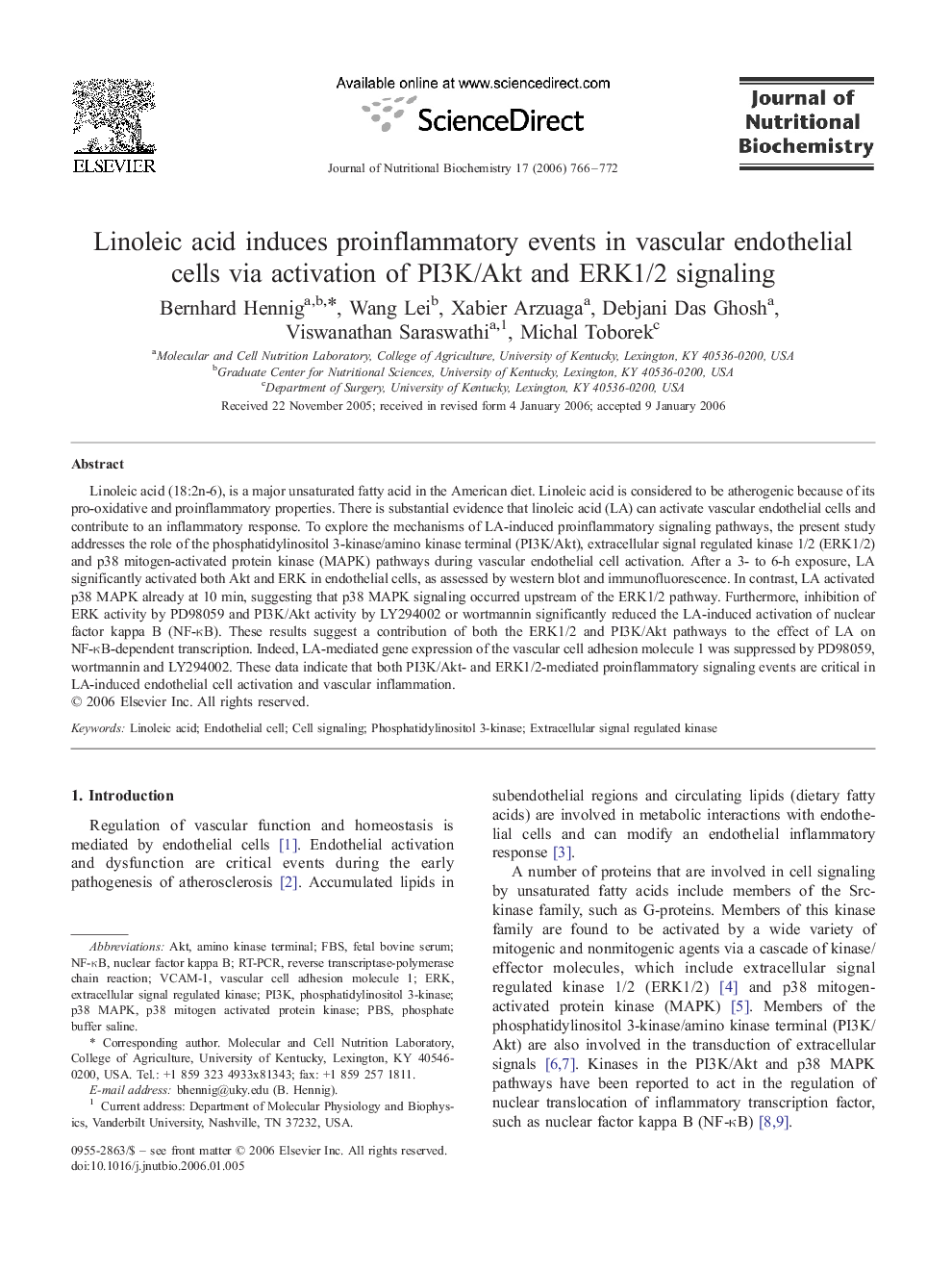| Article ID | Journal | Published Year | Pages | File Type |
|---|---|---|---|---|
| 1990899 | The Journal of Nutritional Biochemistry | 2006 | 7 Pages |
Linoleic acid (18:2n-6), is a major unsaturated fatty acid in the American diet. Linoleic acid is considered to be atherogenic because of its pro-oxidative and proinflammatory properties. There is substantial evidence that linoleic acid (LA) can activate vascular endothelial cells and contribute to an inflammatory response. To explore the mechanisms of LA-induced proinflammatory signaling pathways, the present study addresses the role of the phosphatidylinositol 3-kinase/amino kinase terminal (PI3K/Akt), extracellular signal regulated kinase 1/2 (ERK1/2) and p38 mitogen-activated protein kinase (MAPK) pathways during vascular endothelial cell activation. After a 3- to 6-h exposure, LA significantly activated both Akt and ERK in endothelial cells, as assessed by western blot and immunofluorescence. In contrast, LA activated p38 MAPK already at 10 min, suggesting that p38 MAPK signaling occurred upstream of the ERK1/2 pathway. Furthermore, inhibition of ERK activity by PD98059 and PI3K/Akt activity by LY294002 or wortmannin significantly reduced the LA-induced activation of nuclear factor kappa B (NF-κB). These results suggest a contribution of both the ERK1/2 and PI3K/Akt pathways to the effect of LA on NF-κB-dependent transcription. Indeed, LA-mediated gene expression of the vascular cell adhesion molecule 1 was suppressed by PD98059, wortmannin and LY294002. These data indicate that both PI3K/Akt- and ERK1/2-mediated proinflammatory signaling events are critical in LA-induced endothelial cell activation and vascular inflammation.
